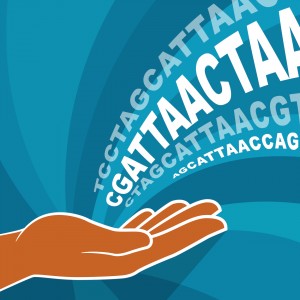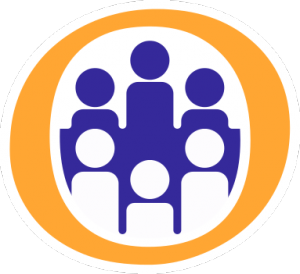Open Research, Open Data, Open Humans
Ernesto Ramirez
March 25, 2015

“Open Humans aims to break down data silos in human health and research. We believe data has a huge potential to live and grow beyond the boundaries a single study or program. Our online portal allows members to aggregate data from the research they participate in. By connecting individuals willing to share existing research data about themselves with researchers who are interested in using that data, data can be re-used and built upon.” — OpenHumans.org
On March 24, 2015 the Open Humans Network officially opened their virtual doors and began allowing individuals to sign up and engage in a new model of participatory research. We spoke with Co-founder & Principal Investigator of the Public Data Sharing study, Madeleine Ball, Ph.D. about Open Humans, what it means for research, and what we can look foward to from this exciting initiative. The following is an edited transcript of that conversation.
It’s been a lot of work up to this point.
We’re grateful to have the funding support of two organizations to help get this off the ground, the Knight Foundation and the Robert Wood Johnson Foundation. It’s been a lot of work to get to this point, from hiring Beau Gunderson as our Senior Software Gardener to launching with our first three studies. We’re excited to be partnering with the Harvard Personal Genomes Project, the American Gut study, and the GoViral study. These are the seed studies, what we’ll build off of in the coming months and years. Today, we’re excited to start letting participants in these projects, and all individuals interested in participating in research, know about Open Humans.
This is an open invitation to join us.
We’re also working to make it easier for research partners to join the Open Humans Network. We’ve already started receiving interest from researchers that want to integrate with Open Humans or start working with our already growing public data sets. We’ve set parameters regarding how you have to behave as a study as well as how researchers looking to work with our members should engage with us. (You can find out more about that here.)
For members who sign up with us we’ve developed methods for them to control access to their data. Whether that is data from personal health devices and apps like Runkeeper (adding this to our next project), genetic data, or other data sources derived from participating studies, each individual member will have the ability to establish a peer-to-peer interaction. Members can allow access to some data, but not others. They may choose to release some or all of their data publicly, or the may choose to only share with one study. In the end it’s up to them and their individuals goals.
What excites me about Open Humans is the potential we have to transform future research studies — from how they treat data to how they think about data sharing. We’re building our system so that participants are central to the data process. A good example of this when researchers use our member’s data they must also agree to return any new data that results from their research back to the original participant. This decentralization of data is a key component of our design. No single person, researchers, or study has all the data.
We’ve also built in the ability for researchers to contact our members who contribute data. The idea that researchers must come up with all the right questions before starting a study is a recipe for failure. Researchers are not psychic, that can’t forsee what interesting questions might come up in the future. By opening up the ability for these connections to take place in the design of Open Humans, we’re creating the ability to continue asking questions of specific individuals, or groups of people, far in to the future.
We’re founded on the principle of transparency. You as a researcher, or participant member can see what we’re all about. You can even see our Open Human member profiles (Madeleine Ball, Jason Bobe, Beau Gunderson). We worked with Marcia Hoffman, special counsel to the Electronic Frontier Foundation, to develop our Terms of Use and Data Use Policies so that they’re readable and easily understood. We want people to read them, we want them to ask us questions. We want people to be engaged and involved.
I think this work is creating a new form of data sharing that will unlock a world of new exciting possibilities. Our hope is that when participants start getting data back from studies, and have the ability to use it and share it how they wish, that participation in research will be more rewarding. This model helps participants become a respected member of the evolving research conversations happening all over world. We know a lot of people don’t participate in research, even researchers who rely on participants don’t participate in studies. Hopefully this work will help move the needle.
It’s wonderful to see the long scroll of members.
As of this writing the Open Humans Network has over 200 individuals who have created member profiles. If you’re interested in participating in open research you can learn more and sign up here. If you are a researcher or personal data company interested in integrating with Open Humans you can get in touch with the team here.
We invite you to share your data access stories, and this article with the #qsaccess hashtag and follow along here, on Medium, and @quantifiedself.




